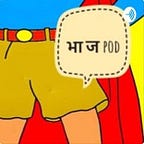Why do we have nation-states?
So, what is a nation and why do we have nation states? In the continuous line of human history nation states are fairly modern. Before the peace treaty of Westphalia, we did not even have a construct of what a sovereign nation state could be. Benedict Anderson wrote a book on this subject called Imagined Communities, highly recommend, and his primary hypothesis is that after the decline of previous types of communities, namely, the religious community and the dynastic monarchies, the idea of a politically united, industrial-capital nation state was imagined.
Why are nations so effective? Anderson argues that nations gave human beings a sort of connection between fatality and continuity, something that religions were capable of, that progressive thought like liberalism or Marxism were not capable of. Nations “replaced” religion in that regard. This is partially why identity is so tied to the nation, why people are so willing to die for the nation, etc. etc. At its core nation states are political entities and exist in multi-level contractual form, you and I were born within the political entity of India and the state of India thus recognizes us as her citizen. What that means is that the state has signed an implicit contract with us from the moment of our birth that the law of the land is applicable to us and we have virtually given our consent to the idea until we do not. The contract determines and gives us a framework of how I treat you (monetary to property interactions), as well as how a state deals with us, if I steal from you I break that contract with you and state and therefore the state is authorized to prosecute me. The nation states have an implicit contract of sovereignty recognizing each other (therefore South Sudan is a state and ISIL is not). The state to work needs us to agree to the contract that is the penal code and constitution.
Now, is there an emotional element to this feeling of nationhood, depends. Invention of tradition is a concept made prominent by Eric Hobsbawm and Terence Ranger. Hobsbawm argues that many “traditions” which “appear or claim to be old are often quite recent in origin and sometimes invented.” The phenomenon is particularly clear in the modern development of the nation and of nationalism, creating a national identity promoting national unity, and legitimizing certain institutions or cultural practices. Modern nations generally claim to be unconstructed human communities so ‘natural’ as to require no definition other than self-assertion. These traditions lead us to somewhat naturally assume a continued existence of nation states when there might not be one. An example: Scottish Highland Tradition, today whenever Scotsmen gather to celebrate their national identity, they do so by wearing kilts woven in a tartan whose color and patterns indicate their “clans” and play seemingly ancient Scottish music on their bagpipes. However, the whole concept of a distinct Highland culture and tradition [including kilts woven in specific tartans and bagpipes] is a retrospective invention.
What seems ancient first emerged in the 17th Century and was refined, re-branded, and updated in the 19th Century. When George IV as the first Hanoverian monarch planned his visit to Edinburgh, commercial and national interests entered into an alliance to invent several key traditions of Scotland, a fact which had virtually no historical basis. When the king announced his visit, Sir Walter Scott, the novelist, was in charge of celebrations and wanted to put on a show including the Highlanders and their kilts.
Hobsbawm said, it is clear that plenty of political institutions, ideological movements and groups — not at least in nationalism — were so unprecedented that even historic continuity had to be invented, for example by creating an ancient past beyond effective historic continuity, either by semi-fiction (Boadicea, Vercingetroix, Arminius the Cheruscan) or by forgery (Ossian, the Czech medieval manuscripts). It is also clear that entirely new symbols and devices came into existence as part of national movements and states, such as the national anthem (of which the British in 1740 seems to be the earliest), the national flag (still largely a variation on the French revolutionary tricolor, evolved 1790–94), or the personification of “the nation” in symbol or image.
Gulf states for example are different nation states that in any other universe would very well have been one state and India is the exact opposite of it. Is India better off being a state and Gulf nations not, is not a question that I can answer but in its essence nation states exist because we need people to live within certain civil contracts and the easiest way to make them obey those contracts is by showing them this imagined sense of community for which they have to adhere to certain laws, in general these communities are created based on ethnicity or linguistic commonalities for most of our history because that is how humans react better and that is why India much like Gulf states is an outlier, this unit helps in organizing processes to help foster individual human development as well as provides people a sense of community.
In an ideal world we shall all be part of a global community with our little provincial nation states in a weak federal system and perhaps that would be the next step of our socio-cultural evolution.
